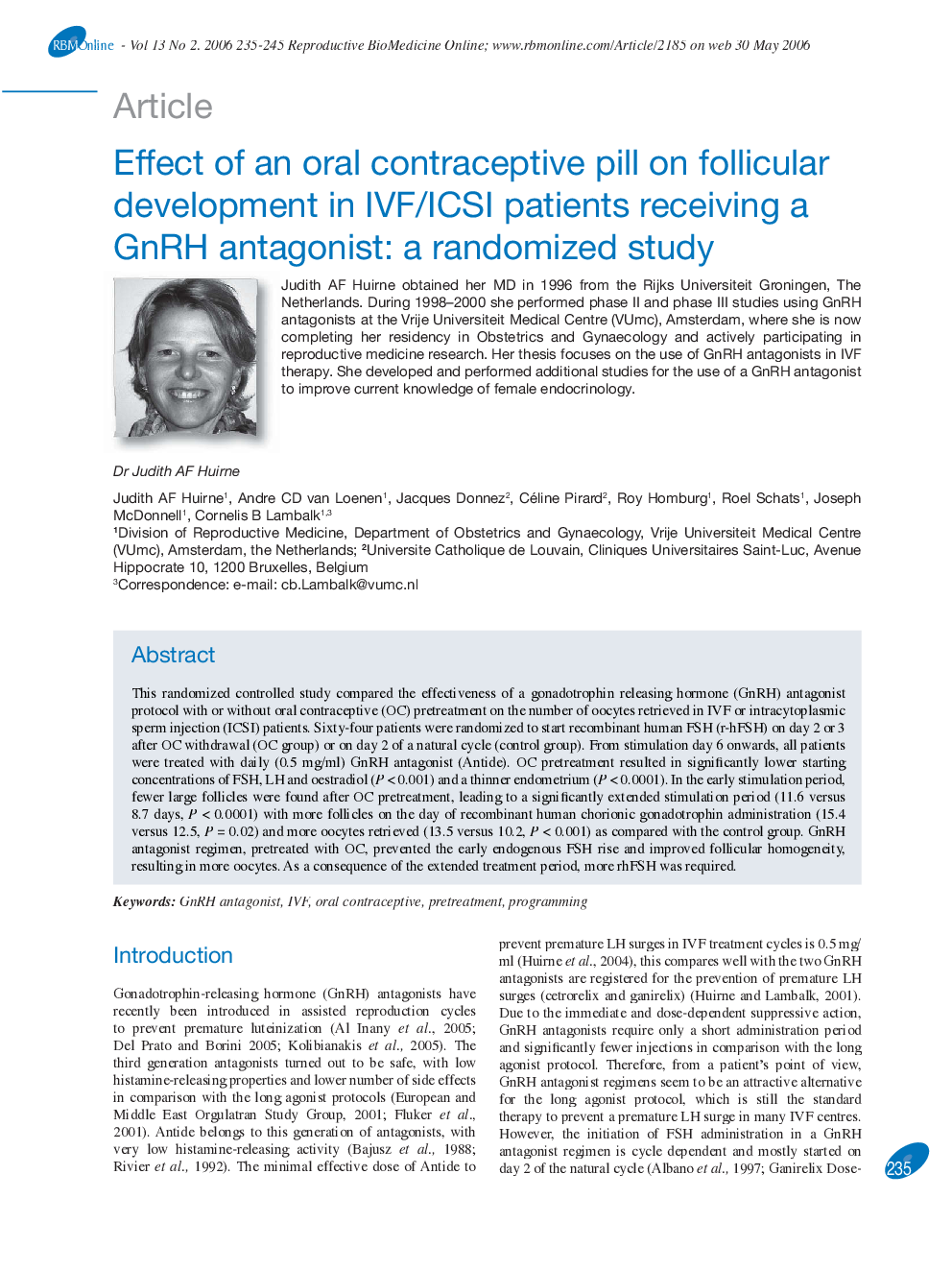| Article ID | Journal | Published Year | Pages | File Type |
|---|---|---|---|---|
| 3972845 | Reproductive BioMedicine Online | 2006 | 11 Pages |
This randomized controlled study compared the effectiveness of a gonadotrophin releasing hormone (GnRH) antagonist protocol with or without oral contraceptive (OC) pretreatment on the number of oocytes retrieved in IVF or intracytoplasmic sperm injection (ICSI) patients. Sixty-four patients were randomized to start recombinant human FSH (r-hFSH) on day 2 or 3 after OC withdrawal (OC group) or on day 2 of a natural cycle (control group). From stimulation day 6 onwards, all patients were treated with daily (0.5 mg/ml) GnRH antagonist (Antide). OC pretreatment resulted in significantly lower starting concentrations of FSH, LH and oestradiol (P This randomized controlled study compared the effectiveness of a gonadotrophin releasing hormone (GnRH) antagonist protocol with or without oral contraceptive (OC) pretreatment on the number of oocytes retrieved in IVF or intracytoplasmic sperm injection (ICSI) patients. Sixty-four patients were randomized to start recombinant human FSH (r-hFSH) on day 2 or 3 after OC withdrawal (OC group) or on day 2 of a natural cycle (control group). From stimulation day 6 onwards, all patients were treated with daily (0.5 mg/ml) GnRH antagonist (Antide). OC pretreatment resulted in significantly lower starting concentrations of FSH, LH and oestradiol (P < 0.001) and a thinner endometrium (P < 0.0001). In the early stimulation period, fewer large follicles were found after OC pretreatment, leading to a significantly extended stimulation period (11.6 versus 8.7 days, P < 0.0001) with more follicles on the day of recombinant human chorionic gonadotrophin administration (15.4 versus 12.5, P = 0.02) and more oocytes retrieved (13.5 versus 10.2, P < 0.001) as compared with the control group. GnRH antagonist regimen, pretreated with OC, prevented the early endogenous FSH rise and improved follicular homogeneity, resulting in more oocytes. As a consequence of the extended treatment period, more rhFSH was required.
